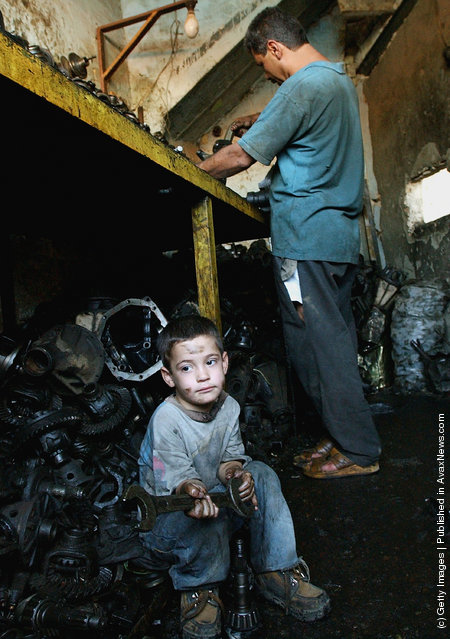Their voice, our equal future, time to focus on girls in Iraq
11th October marked the International Day of the Girl Child, a day dedicated to girls’ empowerment, fulfilment of girls’ rights and solving challenges that they face.
This year, the global theme is “My Voice, Our Equal Future,” a reminder to listen to girls , understand the changes they want to see and to ensure that all of them have an equal opportunity for a bright, safe and healthy future.
In Iraq, the challenges experienced by girls and boys are many and complex. Violence against children, including young people is unacceptably high in Iraq, with 80 per cent facing violence at home and in schools. Many girls in Iraq, like millions of girls around the world, suffer from female genital mutilation, child marriage, sexual harassment and abuse, and other harmful practices.
Girls across Iraq continue to be particularly affected by increased insecurity, which in turn has imposed restrictions on movement that affects their access to education, protection and jobs. Young girls are keen to make the most of opportunities, have specific interests, identities and experiences and are keen to share accountability in their development, exercise of human rights and ensure their gender-differentiated needs.
The COVID-19 pandemic and restrictions on movement have elevated risks for girls to be violated and abused. The number of gender-based violence cases has increased since the onset of COVID19 pandemic in Iraq according to the Protection Cluster Monitoring in Response to COVID-19 (August 2020)
According to the GBV Information Management System’s data of the first two quarters of 2020, 23 per cent of the incidents of violence reported to the service providers were among children and adolescents, of which 6 per cent were aged between 0 and 11 years, and 17 per cent were aged between 12 and 17 years old.
Interviews conducted by the United Nations with families living in displacement camps across Nineveh governorate, affirm that child marriage remains a frequent practice and a coping mechanism for families living in poverty to reduce the financial strain.
Education and learning are some of the best ways to empower girls and protect them against violence, exploitation and social exclusion by providing them with the opportunity to build a better life for themselves, their families and their communities. To make education and learning accessible and empowering for girls, it needs to be safe and gender sensitive.
Having zero tolerance to bullying, cyberstalking, sexting and harassment should be a priority for all as part of the national COVID-19 efforts to reimagine school systems and learning, we must address violence against girls of all ages in and around classrooms and on digital learning platforms. Because girls have higher risk than boys to experience violence, verbal and sexual abuse, a multi-sectoral approach is needed to address all risk factors and cases. Youth-friendly, accessible and quality education and learning, health and social services are essential for girls’ empowerment and their development.
Ending gender-based violence is not a far-fetched dream; this is a real possibility. All that is needed is for girls to have access to formal education, , skilled, civically engaged, healthy, supported, and protected at home, in institutions and at the community. The alternative is devastating with a lasting negative and damaging impact to the health, education and well-being of Iraqi girls.
We call on the government, civil society organisations, the private sector, faith-based groups and the international community to accelerate their efforts to:
- Improve equal access to quality primary and secondary education including life-skills
- Promote access to alternative learning opportunities for out of school adolescents and youth, in the form on life skills and citizenship education, including social and business entrepreneurship for improved learning to work transition;
- Increase capacity of the health sector to provide adolescents and youth-friendly health services across the country, with focus on girls; Ensure that girls – survivors of GBV access free and quality specialised services anchored in survivor-centred and age-appropriate approaches
- Mobilise girls, boys, parents and leaders through civic and social engagement to challenge discriminatory gender norms and create real social, economic and civic opportunities for all girls;
- Draft and enforce legislation, such as the anti-domestic violence law and child law, to protect girls and prosecute those who harm them;
- Implement the recommendations by the Committee on the Elimination of Discrimination against Women, including to criminalise, forced, temporary and child marriage;
- Increase availability of child protection services for girls and young women.
Girls can be powerful agents of change, and nothing should keep them from participating fully in all areas of life. We must come together and show our commitment by dedicating resources for girls to realise their rights and fulfil their full potential.
(Source: UN)
The post Time to focus on Girls in Iraq first appeared on Iraq Business News.

